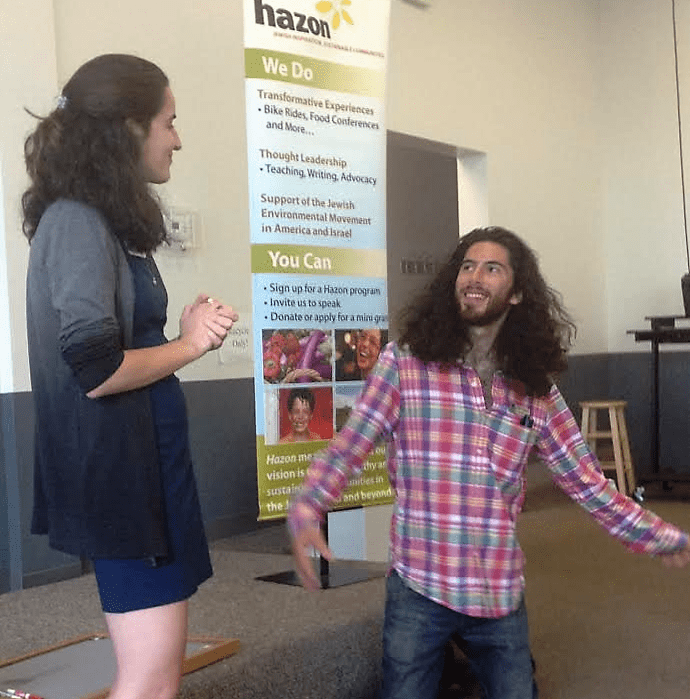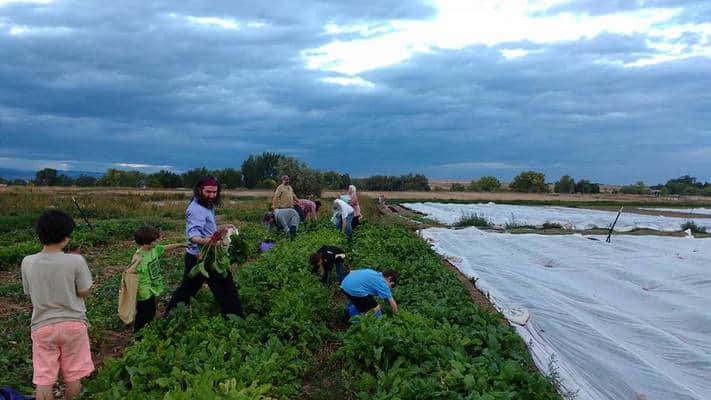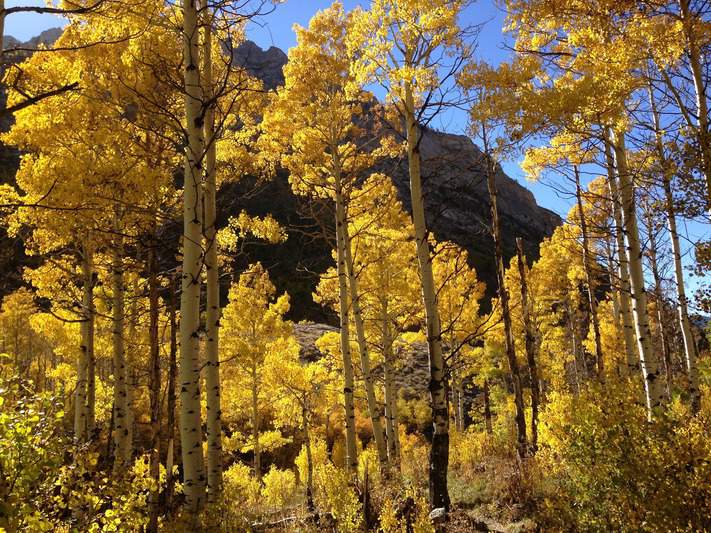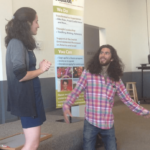Zach Goldberg, Ramah in the Rockies & Congregation Bonai Shalom, Boulder, CO
Yom Kippur and Parashat Vayelech
Editor’s Note: Welcome to D’varim HaMakom: The JOFEE Fellows Blog! Most weeks throughout the year, you’ll be hearing from the JOFEE Fellows: reflections on their experiences, successful programs they’ve planned and implemented, gleanings from the field, and connections to the weekly Torah portion and what they’ve learned from their experiences with place in their host communities for the year. Views expressed are the author’s and do not necessarily represent Hazon. Be sure to check back weekly!
P.S. Interested in being or hosting a JOFEE Fellow? Applications for cohort two are now open for both prospective fellows and prospective host institutions!
—
The high holiday season is full of JOFEE experiences! Elul is mamash the harvest season, and Sukkot is the third and final harvest festival after all! I witnessed this a few weeks ago on the birthday of the Baal Shem Tov, the 18th of Elul.
The celebration was kicked off with a call of the shofar. Morah Yahudis Fishman explained during a noon time shiur at Congregation Bonai Shalom that this call, blowing air through a horn of an animal, awakens the deepest parts of ourselves in order to move us towards teshuva. On a lighter note, we reviewed all the food puns of Rosh Hashanah, including “Raisin Celery” (Raise in Salary) and “May you be at the head (Rosh) of the fish and not the tail.”

A few hours later, I was at the Hazon Colorado Mini-Grant reception at the Kitchen Coop, where 11 organizations or individuals received money to fund JOFEE projects. Yosef Camire of Ahava Farm gave a monologue of his 20 hour days as a farmer. Rabbi Benjy Brackman of Camp Kind introduced us to a new kind of camp that teaches kids about service learning. Becca Habalow and Zack Sapinsley of Moishe House Boulder talked about introducing JOFEE ideas, such as biking and local food, to young adults in Boulder and around the world through being a model Moishe House.
As the sun was going down over the Rocky Mountains, I found myself at Red Wagon Farm, gleaning colorful carrots and gigantic chioggia beets (both symbolic Rosh Hashanah foods) with the Bonai Religious School. Kids, parents, teachers, were smiling and marveling in the abundance in this field. The teaching of the Baal Shem Tov couldn’t be more clear: in Elul, the King is in the fields! There are so many ways to connect to Hashem, our community, ourselves when there is so much wealth and bounty. We take this into our homes on Rosh Hashanah (and the King’s Palace as the Baal Shem Tov teaches us) and feast! This is really a time of high energy, but where does this leave us on Yom Kippur?

When I arrive at Yom Kippur, I am initially a little stumped about how JOFEE relates to this deep day. It is a fast day in the middle of the many high holiday celebrations. It is the happiest day of the year but everyone is moved to be very serious. What is really happening?
At this point I want to take a gratitude pause and give a shout out my teacher, Rabbi Leibish, along with my dear summer chavrusa, Dor Haberer, who both gave me a little insight into the depth of Yom Kippur.
Yom Kippur is all about death. As I write this in late afternoon, I am fully aware that it is getting darker fast. I look out the window and see red and yellow leaves on the trees instead of green. I talk to Wyatt at Red Wagon Farm, who is very aware that the frost is near. I see the squirrels collecting acorns to store for winter.
In the wisdom of Judaism, we see this not as a time for despair but actually the most joyous and redeeming moment! It is when the trees shine their brilliant autumn colors. It is when the slaves are released during the time of the Yovel (Leviticus 25;9). It is when we are our truest selves.

As the trees draw their nutrients close and give the leaves back to the soil, my attention has been drawn to a difficult situation taking place not far from me at Standing Rock Sioux Reservation. Here, yet another oil pipeline, the Dakota Access Pipeline (DAPL), subverts the normal cycles of the earth for the purpose of resource extraction.
In my research, I learned that my bank, Toronto Dominion (TD) Bank, is one of the 17 investment banks involved in the DAPL. How can I not feel personally responsible for this? What does it mean for a JOFEE Fellow to fund pipelines and how should I reflect on this for Yom Kippur? How do we collectively reflect on this? Can we go into the next year building pipelines that have the potential to pollute water and will pollute the atmosphere? Can we go into the next year taking land away from people that have suffered 500 years of injustice? Can we go into the next year disregarding people’s sacred sites?
I hope we all had a powerful Elul, resolving our differences and harvesting in abundance. Now, in the days of awe, is the time to shine a little brighter, look a little deeper. Maybe we can be bright as the trees of forest, who knows? In the words of the Yom Kippur liturgy: I am sorry! I missed the mark this year! Next year will be better!
Zach Goldberg is the dual JOFEE Fellow for Ramah in the Rockies and Congregation Bonai Shalom in Boulder, CO. He has worked on groundbreaking food system projects around the world, including Israel, Barbados, and Montreal. Check out his full bio here.
